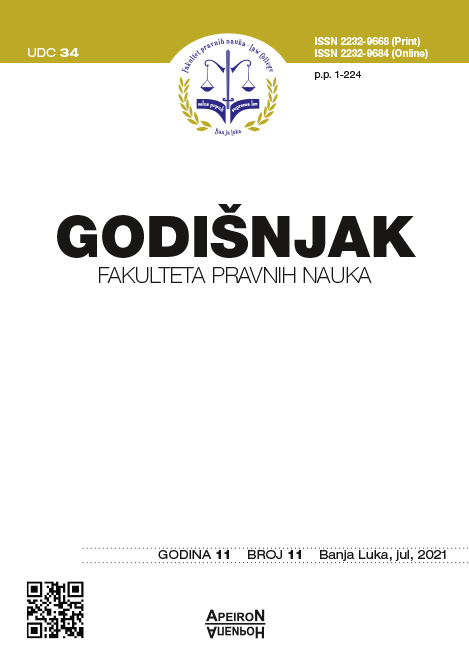Criteria for Assessing the Violation of the Right to a Trial Within a Reasonable Time
DOI:
https://doi.org/10.7251/GFP2111105SAbstract
The well-known sentence in English Justice delayed is justice denied confirms historical awareness of the value of a speedy court decision. The right to a fair trial within a reasonable time applies to both civil and criminal proceedings. In a criminal trial, the issue of adjournment may also be regulated under Article 5 paragraph 3 of the European Convention for the Protection of Human Rights and Fundamental Freedoms when a person is detained. The rationale for the principle, in criminal proceedings, is “based on the need to allow the accused not to remain for too long in a state of uncertainty as to the outcome of criminal charges against him” (Kart v. Turkey, European Court of Human Rights, 2009). Furthermore, the variability of criminal proceedings that take too long - generally damages the reputation of the alleged offender. The European Court of Human Rights explained that “the reason for the verdict in so many lenghty proceedings is that certain contracting parties have not complied with the ‘reasonable time’ requirement under Article 6 paragraph 1 of the European Convention and have not prescribed a domestic remedy for this type of appeal” (Scordino v. Italy (no. 1) [GC], 2006-V).
